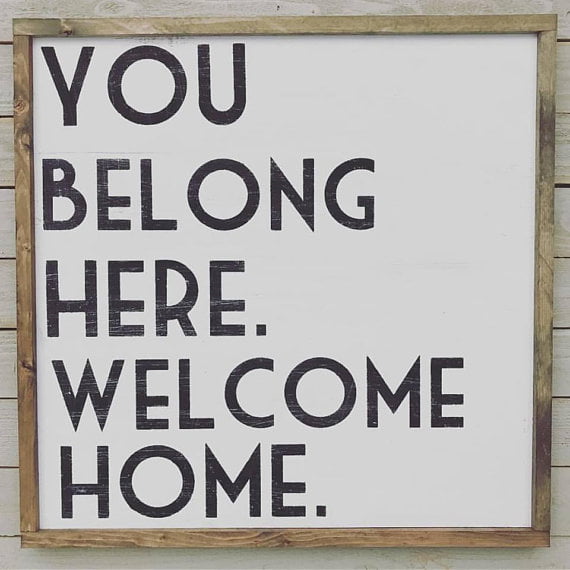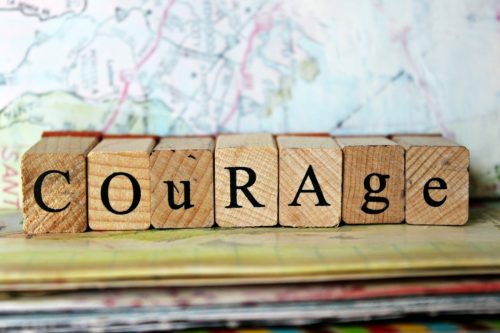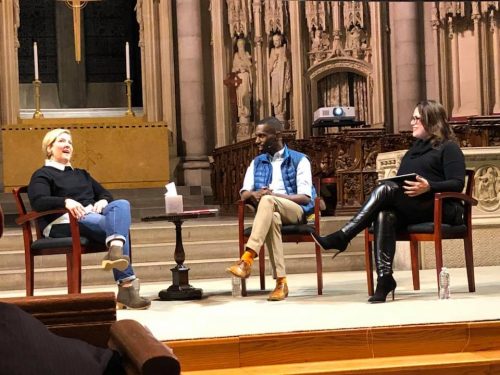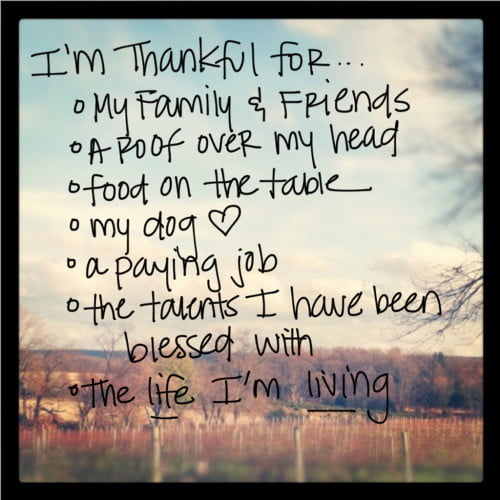 Where do you belong? To whom to you belong? I've been thinking about this a lot this week realizing that . . .
Where do you belong? To whom to you belong? I've been thinking about this a lot this week realizing that . . .
Most of our definitions of what it means to belong comes with constraints like rules and regulations.
If you want to belong to a gym, you’ve got to pay a monthly fee and sign a contract with terms of service.
If you want to belong to a neighborhood association, you’ve got to sign up and pay your dues (and not be late when you pay them!)
If you want to belong to an alumni group of the college you attended, you’ve got to show your alma mater some love from your check book.
Just this week, in fact, I attended a women’s organization meeting in my neighborhood—with the intend of possibly joining the group only to hear after: “Well, you seem nice, but here are 3 more things you need to do before you can consider belonging to us.” (Sigh).
The rules get in the way! Because what we miss is the feeling that we’re seen. We’re heard. And we’re loved. JUST AS WE ARE.
This past Sunday I preached on Jeremiah 31:31-34, a piece of scripture that has a lot to say about belonging. Such was true because the nation of Israel was trying to find its way in post-exile living. They belonged nowhere!
Can you imagine the grief and loss? Their homes were gone. Their livestock was gone. Any authorities present to help them re-build were no longer in charge. It was the definition of living in an "out of sorts" way.
And says this: “I will put my law within them, and I will l write it on their hearts; and I will be their God, and they shall be my people. No longer shall they teach one another, and say to each other, ‘Know the Lord,’ for they shall all know me.”
It was a total 180 degrees shift for this God who'd previously based relationship with his people on laws written in Stone, like the 10 commandments.
God says their relationship would no longer be something they had to figure out. Study well enough. Or honored in a particular way. Nope!
They’d know the LORD because it would be a part of their DNA. The LORD would be closer to them than they were to themselves, even. The Lord would be a key part of their identity.

I couldn't help but draw from the work of Brene Brown at this point in my thinking about belonging.
One of my favorite quotes from her latest book, Braving the Wilderness says this about belonging.
"True belonging doesn’t require you to change who you are; it requires you to be who you are. True belonging is not something you negotiate externally, it’s what you carry in your heart"
Such is exactly what God was trying to communicate to the children of Israel that day through the prophet Jeremiah.
Though their life was in upheaval . . .
Though they have made less than best choices for themselves . . .
Though they may not even know how to find their way back . . .
They belonged.
For though we might wake up on so many days and look around our world and not recognition anything around us that feels familiar, we can be in relationship with a God is about the work of making things new.
We can be in relationship with a God who tells us we don’t have fret so much about acceptance from this authority person in our lives or this organization with prestige.
Because we ALREADY belong.
We can carry ourselves with this knowing. We can always come back to this centering point. God says you belong. You are enough. You are so loved.
It's my hope for you today that you believe what your Creator believes about you.
 Do you have the courage to show up to hard conversations?
Do you have the courage to show up to hard conversations?
It's no secret that courage is in high demand in these times we're living in.
In our polarized everything culture right now, it's so easy to un-follow our social media "friends" who don't believe as we do. It's easy to worship, work and play only with those in our thought camp. It's easy to turn off the news or ignore today's headlines so to forget the reality.
But, last Thursday night, I witnessed two brave public leaders with courage to face each other. They took the harder way showing up a very public arena. They sat on a stage before 2,500 persons in the pews of The Riverside Church in New York City. With what intent? Direct words about race, vulnerability, trauma and politics. And to meet each other face to face for the first time after a twitter conversation in August 2016 that began with these words by DeRay McKesson, a popular young black lives matter activist and curator of the podcast, Pod Save the People.
"Some people live to see other people fail and that's sad. I've noticed that some people #onhere are just so negative. Find some joy folks."
New York Times best-selling author, University of Houston researcher and middle-aged white woman, Brene Brown tweeted back this: "That’s painfully true. I guess joy just takes more vulnerability than cruelty."
The conversation sparked so much interest and attention that The Riverside Church-- a place known for birthing words that matter-- facilitated the meet-up. 
I found myself on the third row for the 90 minute event that became a 2 hour one (that could have kept going). Brene pushed back the latest findings in sociological research. DeRay pushed back on white privilege.
I'm still thinking about lots of things they said (as any good conversation invites you to do) but for today I'm wondering . . . to forge a new path of engaging folks we wouldn't normally talk to, what must we have?
First, willingness to come to the table
There's a sign outside my gym that says, "Showing up is half the battle" and I couldn't believe it more. Isn't getting to the gym so hard sometimes? Things that bring discomfort aren't usually our favorite activities.
Yet, in spite of the expected discomfort, Brene and Deray opened themselves up to this hard work. Let's remember, they didn't have engage in a twitter conversation. They didn't have to show up at the event. But they did. And they kept talking on the stage long after the public conversation ended. It wasn't a staged photo-op for either of them but something very real.
Good work begins here.
Also, ears to hear hard truths
One of my favorite moments of the night was when DeRay spoke of how combatting privilege means being aware of how much space white folks take up in conversations (like Brene was taking up in this one unaware). White people, DeRay said are used to being heard. It's a new starting place to enter a room as a white person aware of those who aren't.
DeRay went on to challenge church folks with this zinger: "Whiteness can be so strong in many congregations that it overcomes belief in God. Whiteness wins over God."
DeRay was brave to tell it like he saw it. Brene was brave to stay in the chair.
And Silence
Another gift of this event was how Brene modeled the gift silent pauses. A dear friend of mine and I joke all the time about our love of "the phone pause."
It's a practice to not rush to the next thing. It's space in conversations to think intentionally. It's the intention of valuing words for the healing or hurt they can cause.
Throughout the event, it was as if you could see the words falling between the two conversation partners as they talked and paused. The words found home deeper into them. The words opened up doors to new beginnings. The words brought life.
I want more life-giving exchanges of words in my life. Don't you? The question I can't get off my mind is this week is: how am I going to start a courageous conversation?
P.S. Do you know ONE friend who might enjoy posts like this in her inbox? Share it, by clicking here.
 Want break up a conversation in a room? Say the word shame. Everyone stops talking.
Want break up a conversation in a room? Say the word shame. Everyone stops talking.
I know this first hand from the experiences I've had this spring promoting Birthed: Finding Grace Through Infertility. One word has risen to define so many of the talks I've given is SHAME.
You can't speak about infertility without talking about shame couples feel when it shatters their dreams. One person voiced to me recently, "Infertility can make you feel like a second class citizen." So true! And while it's an uncontrollable medical condition, a infertile woman (and sometimes the man) believes it's her/ his fault! And so why would we talk about that? (Much less write a book about it!)
But by time I reached the publication date of Birthed, grace found me on the healing journey. As Nadia Bolz Webber is known to say, "it had become a scar, not a wound."
So now, as I'm on the road talking about Birthed, it has been baffling to me how many people have tried to shame me for telling my story.
Saying things like, "I can't believe you wrote that . . ."
Or, "I didn't know you were such a drunk . . ."
Or, "I would have stopped reading the book half way through if I didn't know you. You write too personally about things."
As easy as it would be to accept the shame others want me to feel about writing such a vulnerable memoir, I refuse!
I want to say to my critics, "Why can't you tell the truth about your life too?"
This I know for sure: we have so much work to do in un-shaming not only infertility but divorce, mental illness, affairs, abortion, suicide, job loss. You name it, we love to shame it especially in faith communities.
I know I'm not the first one to say that we, as humans, love hiding our pain. We love appearing more put together than we really are. We love sitting in the pews during religious services allowing our real lives to stay hidden. And often for good reasons. Words that enemies and friends alike throw our way can make us feel terrible!
But, in the Christian tradition we live by another narrative. It is for freedom that Christ set us free!
I'm so thankful for the voices of truth-telling who've come alongside me in this journey, who've held my hands when I've felt discouraged and beaten down. Friends who've bought my book and even wrote a review on Amazon!
I'm especially grateful for those who participated in my Lenten blog series this spring. Each writer told a story of how a potentially shameful part of their lives birthed something beautiful. If you followed it, you know folks shared some great stories!
Today, I not only want to thank each of them publicly for their courage. But, I want to point to their posts again as resources for you and your communities of faith. I'm proud to be in their vulnerable tribe and believe the world needs more storytellers like them. Because this is the only way the tide of shame is going to change.
Alice shared her story going through a divorce.
Mary Kate un-silenced anxiety and depression.
Amy wrote about the unexpected loss of a job.
Dena talked about the ongoing suffering of chronic pain.
Anne wrote about her son's diagnose of autism.
Dolly wrote about she was formed by her father's death, a stillborn child and her divorce.
Master teacher Brene Brown encourages us all here saying: "Owning our story can be hard but not nearly as difficult as spending our lives running from it. Only when we are brave enough to explore the darkness will we discover the infinite power of our light." Amen to that!
P.S. I'm always interested in accepting guest posts. If Preacher on the Plaza can be a place for you to share, a story, I'd love that. Send me an email.
 It’s Thanksgiving week in the United States, that time of year when we all start thinking a little more precisely about what it means to be thankful.
It’s Thanksgiving week in the United States, that time of year when we all start thinking a little more precisely about what it means to be thankful.
In my household, Thanksgiving always including making an "I'm thankful for..." list.
It’s a beloved pre-thanksgiving meal activity I’ve participated in since childhood when my grandmother would ask even the youngest of her grandchildren to express gratitude for something by drawing a picture, sharing a song with the family, or my cousin Ellis’ favorite, the yearly reading of the Dear Abby thanksgiving prayer.
I loved, growing up that our family even had a church service (led by the children) before we ate that included songs, skits and readings. There's no wonder I ended up as a pastor. . .
And this year:
We might say we’re thankful for our access to enjoy tasty food.
We might say we’re thankful for the love of our family or friends.
We might say that we’re thankful for our health, especially if we or someone we love has faced a health scare recently.
While I’m all for public declarations of gratitude, I’ve often felt these types of lists are robotic at best.
But what we avoid is the deeper stuff.
For it might feel just a little too vulnerable to say:
I’m thankful for the months of renewal in my marriage after years of thinking I’d made such a terrible choice in a life partner.
I’m thankful the days when my estranged friend picked up the phone to call me. Things aren’t like the used to be, but they’re getting better.
I’m thankful for one of the worst seasons at my job—days when I worked long hours and never thought my boss was never pleased—for the endurance it’s given me to know what I want next in my career.
Or, I'm thankful I finally sought help for my depression, my alcoholism, my anxiety, etc.
For they speak to real life.
Life that we all experience.
Life that is hard. Life that is messy. And, life that can ultimately be beautiful if we just allow time and grace to do it’s healing work.
I'm reading Brene Brown's new book, Rising Strong right now. And she captured me from the first couple of pages with words like this about the gifts of vulnerability.
"I believe that vulnerability-- the willingness to show up and be seen with no guarantee of outcome-- is the only path to more love, belonging and joy. . . When we own our stories, we avoid being trapped as characters in stories someone else is telling."
And I agree with her.
Our fists loosen.
Our arms unfold.
In this position, gratitude is actually transmitted one person to another.
 And in a world in need so much healing, so much love, so much hope that evil hasn't won in a month of so much terror-- don't we need more REAL gratitude?
And in a world in need so much healing, so much love, so much hope that evil hasn't won in a month of so much terror-- don't we need more REAL gratitude?I know that not every thanksgiving table is ready for this type of sharing. Some tables just aren’t safe places for you and I to lay the burdens and joys of our hearts open to, and we should be mindful of this.
But, we all can find somebody this week—somebody we can give testimony to of our REAL gratitude.
Somebody in whom we could say something like, “You know what, this has been one of the most horrible years of my life, but I am so grateful for . . . ."
Or better yet, seek out a person for whom you are grateful for and let them know how much they mean to you!
I know, for one, I’m grateful for you, dear readers of “Preacher on the Plaza.” Your interest in my words encourages me continually. Happiest of thanksgivings to you!
 There are popular misconceptions when it comes to happiness.
There are popular misconceptions when it comes to happiness.
Happiness defined as a delightful look on your face all the time.
Happiness as "How are you doing?" conversations concluding with an "I'm doing just great!" ending.
Happiness as having a great golf record or a perfect manicure.
Defining happiness in this way makes us feel good in the moment.
But might there be more?
I don't mean to discourage positivity. Because a positivity is a gift. And scientifically proven to reduce sickness, lead to longer relationships, etc. By all means, live with hope.
Two months ago, I posted this blog called "Terrible and Beautiful Things Will Happen." So many of you told me how much you resonated with my words. You also believe that life is of full of the best of times and the worst of times (and sometimes in the same breath).
So today, I want to take that conversation one step further and ask you how you're naming both the terrible and the beautiful? How are you embracing what it most real about your life?
She worked at a job that she excelled and where praise of her work was never to far from anyone's lips.
She mothered three bright-eyed children well on their way to meaningful adulthood. She'd just recently sent her baby to college at Princeton!
She spoke often of her loving husband and all the ways she'd partnered with him to make their shared dreams of owning their own internet company come true!
Wonderful, right?
But, I didn't quite buy it. I never felt at ease around her. She spoke in a fake high-pitched tone whenever anyone new walked in a room. She used words like "Oh yes" and "Honey and Sugar dear" a lot. At church, this woman never spoke up in Bible study when we shared prayer requests. She was too busy telling us all how amazing her life was!
I gave her space and time.
And then one day much to my surprise, she and I had a breakthrough conversation.
Sure, all of those things she most wanted people to know about her were true. She liked her job. Her kids seemed to be doing ok. But on the inside, her marriage was falling apart inside her home and so was her faith.
"I don't know how to talk about this, Pastor" she'd say over and over. "I just want to be happy. My whole life I was taught to be happy. How can I be happy AND acknowledge all of this other stuff?"
I told her to just start. Talk. Tell somebody trustworthy her worries. And, consider how her faith calling was to imperfection. It's not like she was Jesus, afterall . . .
Within weeks, light came to this woman's eyes that I'd never seen before! It was breath-taking to behold as a new community around her began to know her for the first time.
But so few of us talk about it.
Yet, you and I can't truly get to that deep, down gut feeling of security, peace and happiness (what we all really crave) if we don't first start with acknowledging what is not well. And not be ashamed to say:
"I still feel a gaping ache every time I drive the house where my Daddy used to live."
"I yearn for my daughter to make better choices and stop asking me for money."
"I haven't talked to my best friend in ages. We had a falling out."
Or as author Brene Brown writes in her book The Gifts of Imperfection, “Authenticity is a collection of choices that we have to make every day. It's about the choice to show up and be real. The choice to be honest. The choice to let our true selves be seen.”
Brown goes on to describe people who are happy as those who tell the truth about their lives in spaces safe enough to hold them.
My friends, being plastic never looked good on anyone. It doesn't look good me. It doesn't look good on you.
One secret to happiness: just be you. Soon joy will be on the way!
 Who do you trust?
Who do you trust?
When do you trust more?
Why do you trust less?
These are questions I think about a lot as pastor who helps others talk about their relationships, as a friend who wants to listen well and as person who cares about the health of my soul.
Throughout my life, like many of you, I've wrestled much with the two extremes of trust: trusting the wrong people too much AND the right people not enough. It boils down to two words: shoulds and woulds.
I think I should confide in particular people because our shared history demands it.
But they don't call me (unless I call them). We really don't have much of anything in common to do when we are in the same space. And, our time together could be summed up by mixed signals and hurt feelings.
But, still I offer up part of myself to these relationships out of the obligation of should. And I just feel gross afterwards.
There are those I would like to get to know better.
I am attracted to their energy and way of being in the world. I admire their presence in a room from the start, and conversations move quickly from small talk to the real stuff (my favorite!). I can't wait till our next get-together.
But, then I share too little of myself with these people out of fear, putting the would of the friendship in the distant future when I have more courage.
But isn't life too short for all of this unnecessary pain and delayed blessings?
Over the past year, I'm so glad to have found a new teacher in Brene Brown-- an acclaimed shame and vulnerability researcher made famous several years ago by this must watch Ted Talk. Consider this object lesson, Brown writes about in her 2012 book, Daring Greatly.
When Brown's 3rd grade daughter, Ellen, came crying from school one day about some caddy girls on the playground who shared her secrets in a way she did not intend, Brown invited Ellen to think about the marble jar that sat in the middle of her classroom.
Ellen's teacher, you see, had a practice of putting marbles in a large jar on a regular basis when the children followed the rules and worked together well as a team. When they misbehaved and disrespected the rules and one another, she took marbles out. When the bucket brimmed at the top, the class got a big reward like a pizza or ice cream party.
Brown says this: "I told Ellen to think about her friendships as marble jars. Whenever someone supports you, or is kind to you, or sticks up for you, or honors what you share with them as private, [it's like] putting marbles in a jar. When people are mean, or disrespectful, or share your secrets, marbles come out. . . . Trust is built one marble at a time."
It's not that you cut yourself from relationship from the "marble takers" but you don't give your secrets, dreams or power to them. You save the best for who has earned your trust (and visa versa).
And I have to say, this marble illustration has been such a big gift to me. I've trusted differently.
I've said "YES" and "NO" with greater clarity.
I don't begin as many sentences with an "I should."
My heart rests easier at night with joy with more "woulds" realized.
I find myself musing, "I can't believe this is how I'm living my life!"
So, what about you? Have you looked at your jar lately?
 Several years ago I heard a tv special in which TV actress Jane Fonda said this about life: "We are not meant to be perfect. We are meant to be whole."
Several years ago I heard a tv special in which TV actress Jane Fonda said this about life: "We are not meant to be perfect. We are meant to be whole."
Hearing it was one of those stop me in my tracks kind of moments because what truth!
And being whole is not about: "Bam! Now I've got my stuff together" but rather a really long journey. In my faith tradition, we call this spiritual formation.
Yet, how much of our lives do we live striving for perfection?
A diet the starves us. A succession plan at work that enslaves us. And, keeping a pristine yard that exhausts us. 
And not only this. Some of us won't go out of our house without our make-up.
We don't say what is troubling us in the church prayer request time or even around the table at lunch with girlfriends.
And as a result, sure, we might look good in public and be the envy of others for our wonderful lives. But, perfectionism costs us something. Here are 4 things:
I can smell a fake 50 feet away, can't you? I don't respect (or follow for that matter) people who aren't telling the truth.
Fakers are not those who make it to the top in the very end.
Fakers are not the friends you call in the middle of the night when you need a friend. Fakers are not the ones who are cared for in community when life hits it most rocky patches.
In the race toward perfection we begin to "see ourselves more highly than we ought" as Paul warns against in the book of Romans.
You know those perfect friends of yours who always have the best plan for how to make their spouse do exactly what they want to do on Friday night, or how to start potty training their child at 18 months old, or who achieve the highest percentage of weight loss in only a month?
And what is worse is they don't even see it.
Sure, there are times when out of the norm things happen that are wonderful, but to be human is to NOT have your surroundings exactly aligned as if we were in charge of our own universe. We all have bad luck sometimes.
Those who are in the rat race to be perfect, often don't have the time for others. These folks don't have time to stop and help a co-worker.
They don't have time to consider the recent losses experienced by a friend.
Friends like this don't have time to simply sit with a person through long-term crisis.
Why?
Because all of these things slow a perfectionist seeker down.
And not only this, I don't know how many times that people have said to me as a pastor, "I'd wish could help ____ who needs help but I can't. I'm not sure I would know what to say or do." Perfectionism often paralyzes us from what could be human to human encounters of love.
Brene Brown has become the queen of talks about vulnerability. Her book The Gift of Imperfection became a national best seller (if that tells you anything about American culture and what we most crave).
She says this about vulnerabilities' gifts for us: “Owning our story can be hard but not nearly as difficult as spending our lives running from it.
Embracing our vulnerabilities is risky but not nearly as dangerous as giving up on love and belonging and joy—the experiences that make us the most vulnerable.
Only when we are brave enough to explore the darkness will we discover the infinite power of our light.”
Show more of your warts today!